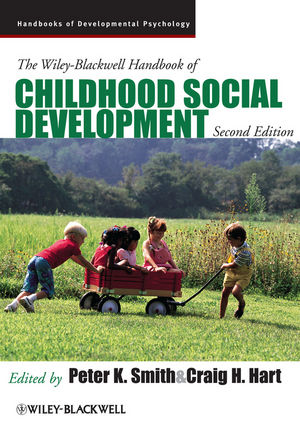The Wiley-Blackwell Handbook of Childhood Social Development, 2nd EditionISBN: 978-1-4051-9679-6
Hardcover
714 pages
December 2010, Wiley-Blackwell
 This is a Print-on-Demand title. It will be printed specifically to fill your order. Please allow an additional 10-15 days delivery time. The book is not returnable.
|
||||||
“Anyone who has wrestled with these questions will want this book on their shelves. . . This is the definitive authority on raising a healthy social child from 3 years to adolescence.” (Parent City, 6 November 2013)
This is what a handbook should be. It is an invaluable resource comprised of chapters by the top people in the field providing comprehensive, up-to-date coverage of the full range of topics on social development.
—Larry Nucci, University of California, BerkeleyThe Editors set out to capture emerging trends in the field and
the results are encouraging: promising new developments in our
understanding of social development are described, and ideas for
new research are explicitly set out. The strengths of the first
edition remain: the clarity of the text and the thoroughness of the
coverage. It is undoubtedly an exceptional advanced book which will
be very widely used and appreciated.
—Judith Dunn, King’s College London
This handbook is an important resource for students and
researchers alike. It succinctly summarizes the state of the
field, with scientific leaders discussing the wide range of
research on children’s social behavior.
—Felix Warneken, Harvard University
This handbook is a landmark achievement. It is an indispensible
guide to the new theory and research on social development, and the
chapters provide insights into practical applications for schools
and society. It is destined to become an “instant
classic” — the authoritative reference book on child
social development.
—Andrew N. Meltzoff, University of Washington



